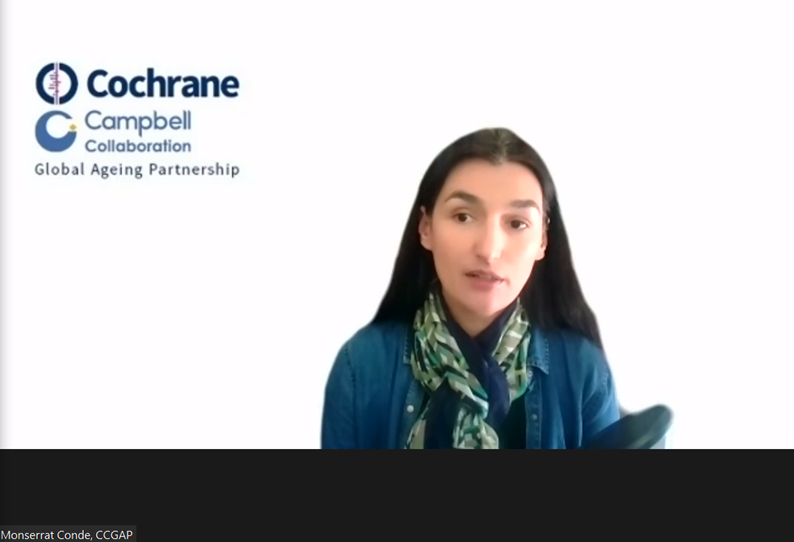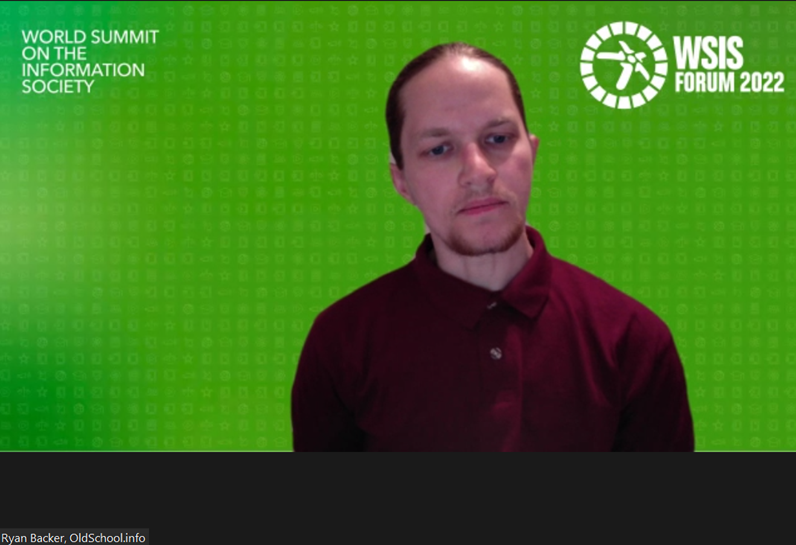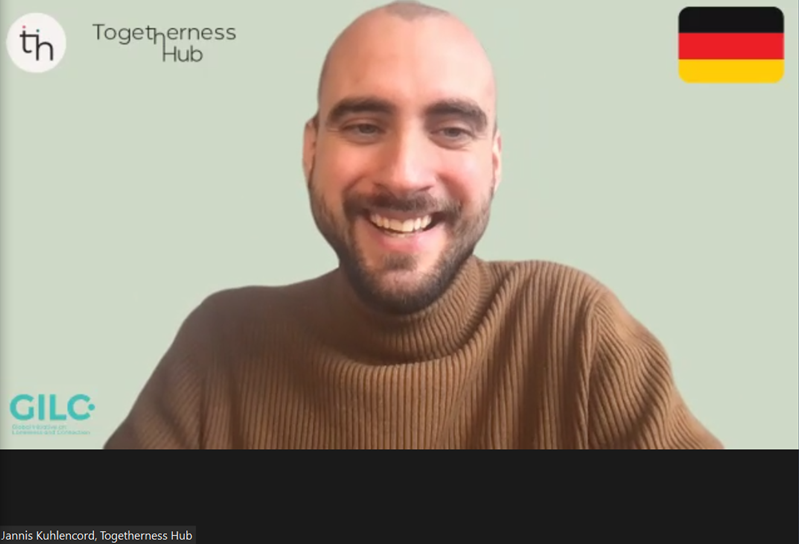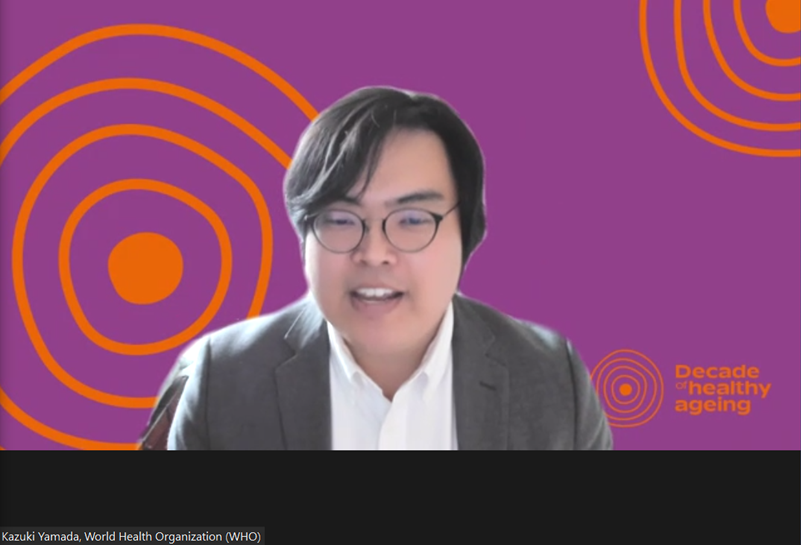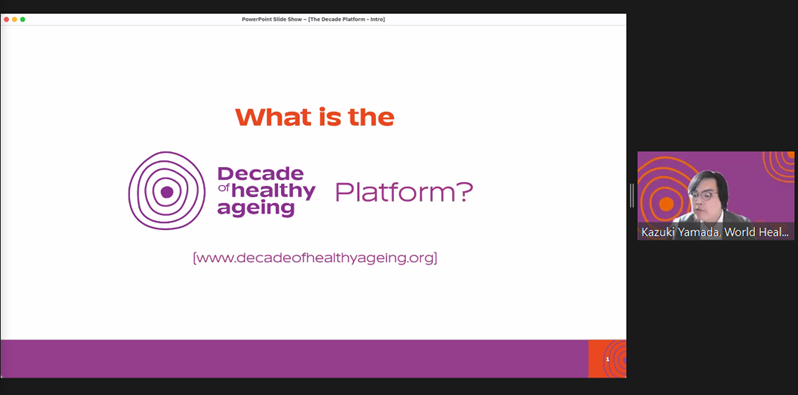Knowledge sharing and collaboration in a digital world for the UN Decade of Healthy Ageing
Cochrane Campbell Global Ageing Partnership / OldSchool.info / Togetherness Hub / World Health Organization
Session 245
The role of digital technologies in facilitating connections and mutual learning for healthy ageing is gaining increasing importance globally, particularly in the context of the COVID-19 pandemic. This session will highlight how stakeholders from across diverse sectors are facilitating collaborative work through information and communication technologies (ICTs) to continue #AddingLifeToYears during the UN Decade of Healthy Ageing.
The session will also be an opportunity to reflect on how we can #LeaveNoOneBehind even as we strive to widen networks and learning through digital technologies, and discuss how to address some of the challenges faced by initiatives that draw on ICTs to improve knowledge equity and literacy (e.g. addressing digital divides).
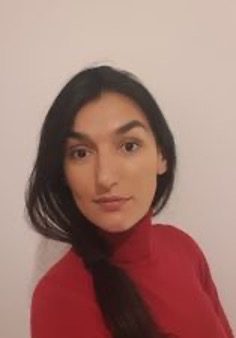
Monserrat Conde (PhD) is a Co-director and the Field Executive of Cochrane Campbell Global Ageing Partnership (CCGAP) and a Cochrane Council Member; where she has been involved in evidence synthesis and knowledge mobilization activities. Her research interests include healthy longevity, cultural adaptations of health interventions and evidence-based policy and decision making in public health topics. A strong advocate for making high quality evidence-based information freely accessible to people around the world, she leads the Cochrane Campbell Global Ageing Partnership Wikipedia project. This volunteer initiative counts with over 23 million views worldwide.
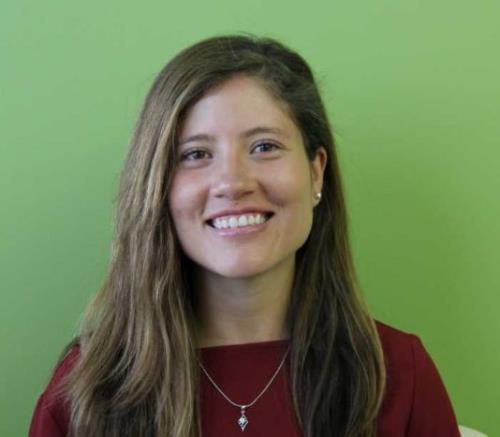
Laura Garcia Diaz holds a Bachelor of Arts degree in Psychology and a Master of Science degree in Rehabilitation Sciences. Laura is currently pursing a dual degree (MSc Occupational Therapy/PhD Rehabilitation Science) at McMaster University, Canada. Laura is passionate about making knowledge and information available and accessible for people living with dementia and their care partners. Laura supports the management of the WHO’s Global Dementia Observatory Knowledge Exchange Platform. Previously, Laura worked as a knowledge translation and exchange coordinator with the Alzheimer Society of Canada. Through her work, Laura’s goal is to help improve the health and social care experiences of people living with dementia and their care partners.
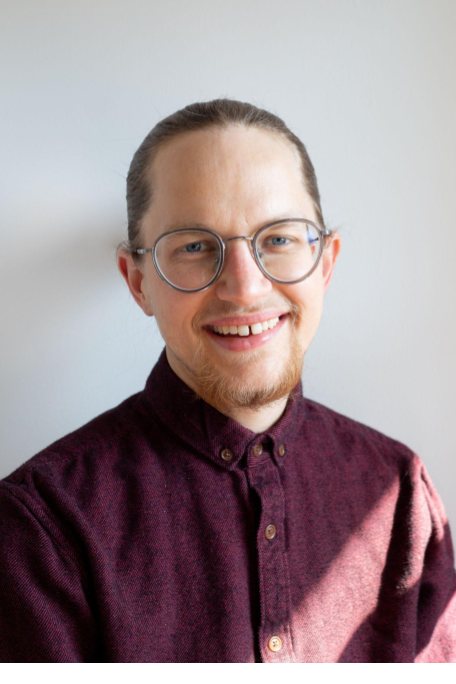
Ryan Backer is an age activist striving to undo ageism along with all other forms of oppression. Their work aims to decolonize age using a non-binary framework. They identify as a non-binary, queer, European-American old-person-in-training. They have an undergraduate degree in Gerontology and Black Studies and they’re the co-founder of the OldSchool.info, a clearinghouse for all things anti-ageism. They've facilitated workshops on undoing ageism and queering age in NYC, Philadelphia, Louisville, Germany, Ireland, Canada and online. You can learn more about their anti-ageism workshop 'Age Queer' in their zine, as well as their collaborative workshop called "Let's Dismantle Ageism!” amongst others. Ryan aims to eradicate ageism, along with white supremacy, gender bias, ableism, body shaming, homophobia, classism and all other forms of oppression. They've worked as an in-home care partner, as well as interned at the Edie Windsor SAGE Center, the NYC Elder Abuse Center, and Brooklyn Pride Center's ElderPRIDE. Ryan is based in Tio'tia:ke, colonially known as Montreal, where they work on OldSchool, write, work part-time as a care partner, organize intergenerational events, and go on adventures with their cat Fitz. They are originally from Munsee Lenape territory, colonially known as New Jersey, and have been on this social justice path since 2013.
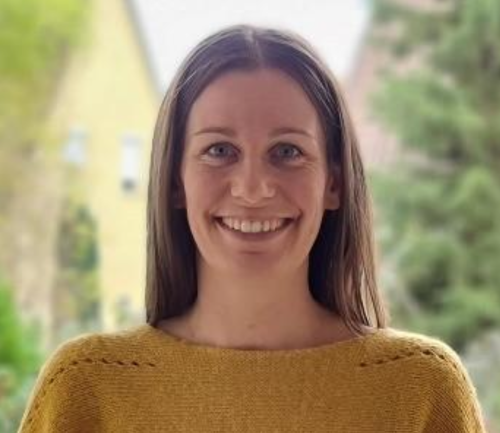
Rahel Herczeg is a renowned expert in the fields of International Business Development & Digital Innovations, who had touch points with a variety of large corporations as well as innovative start-ups during her professional career in SAP, a leading company in business software solutions. She is the co-founder and vice chair of the Togetherness Hub, a founding member of the GILC and a dedicated change maker, who nurtures and builds social health ecosystems.

Jannis Kuhlencord is the founder and chairperson of Togetherness Hub, an international & interdisciplinary community platform, which brings together thought leaders, researchers and projects focused on social health, loneliness and the future of human connection. Additionally, he is one of the founding members of the Global Initiative on Loneliness and Connection (GILC) and is spearheading the efforts in Germany to create a coordinated, national approach in tackling loneliness. He previously held various roles in the European Youth Parliament, founded and curated TEDxHeidelberg, organized events for a leading company in business software solutions and was involved in a variety of other event formats.
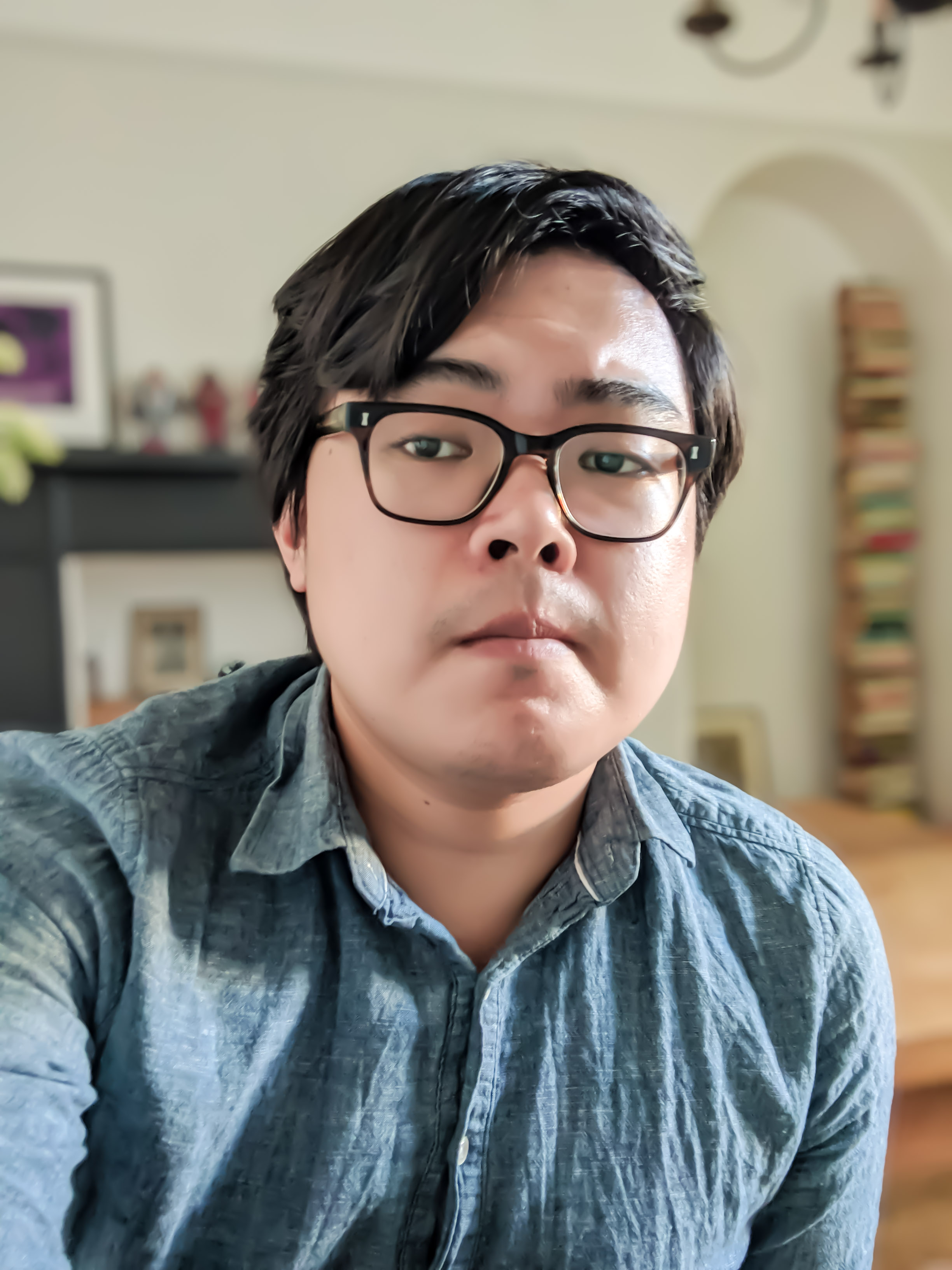.jpg?maxwidth=500)
Kazuki Yamada supports the implementation of UN Decade of Healthy Ageing (2021-2030) through management of its communications and brand, and as administrator and project manager of the Decade’s knowledge exchange Platform.
Kazuki is a Japanese national. He has supported WHO’s work on healthy ageing from the perspective of communications and digital connectivity for over 5 years. Before joining WHO, Kazuki worked for HelpAge International in support of the Age Demands Action campaign, and operated as a designer and strategic communications consultant in the private sector for over 7 years. Kazuki is currently completing a joint PhD in the medical humanities with the University of Exeter, UK and the University of Queensland, Australia, and holds an MA in Ageing & Society from King’s College London as well as a BSc (Hons) in Biomedical Science from the Ateneo de Manila University, Philippines.
-
 C1. The role of governments and all stakeholders in the promotion of ICTs for development
C1. The role of governments and all stakeholders in the promotion of ICTs for development
-
 C2. Information and communication infrastructure
C2. Information and communication infrastructure
-
 C3. Access to information and knowledge
C3. Access to information and knowledge
-
 C4. Capacity building
C4. Capacity building
-
 C5. Building confidence and security in use of ICTs
C5. Building confidence and security in use of ICTs
-
 C6. Enabling environment
C6. Enabling environment
-
 C7. ICT applications: benefits in all aspects of life — E-learning
C7. ICT applications: benefits in all aspects of life — E-learning
-
 C10. Ethical dimensions of the Information Society
C10. Ethical dimensions of the Information Society
-
 C11. International and regional cooperation
C11. International and regional cooperation
-
 Goal 3: Ensure healthy lives and promote well-being for all
Goal 3: Ensure healthy lives and promote well-being for all
-
 Goal 4: Ensure inclusive and equitable quality education and promote lifelong learning opportunities for all
Goal 4: Ensure inclusive and equitable quality education and promote lifelong learning opportunities for all
-
 Goal 5: Achieve gender equality and empower all women and girls
Goal 5: Achieve gender equality and empower all women and girls
-
 Goal 9: Build resilient infrastructure, promote sustainable industrialization and foster innovation
Goal 9: Build resilient infrastructure, promote sustainable industrialization and foster innovation
-
 Goal 10: Reduce inequality within and among countries
Goal 10: Reduce inequality within and among countries
-
 Goal 16: Promote just, peaceful and inclusive societies
Goal 16: Promote just, peaceful and inclusive societies

